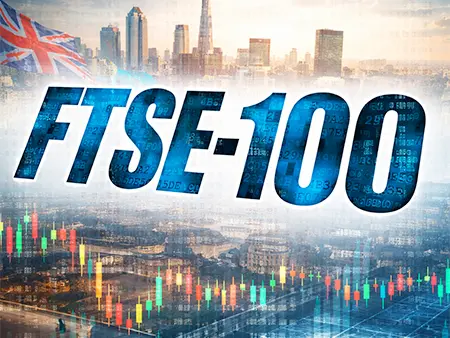Alibaba Group Holding Ltd saw its share price increase after it announced a major deal with China Unicom for its artificial intelligence (AI) chips.
Alibaba (BABA) shares surged on Tuesday evening after Chinese state media network CCTV confirmed it had secured a high-profile new client for its artificial intelligence (AI) chips. China’s e-commerce giant has struck a deal with China Unicom, the country’s second-largest wireless carrier, to deploy its Pingtouge or “T-Head” AI accelerators.
The mobile provider will use Alibaba’s AI accelerators at its new Sanjiangyuan data centre in Qinghai province, alongside products from MetaX and Biren. The centre forms a major part of China’s wider plan to strengthen domestic computing infrastructure, while also reducing the reliance on foreign chipmakers such as US-based Nvidia.
Following the news, the BABA stock price closed more than 5% higher in Hong Kong, while its US-listed stock was up more than 2% in premarket trading. Investors saw the deal as a sign that Alibaba’s semiconductor efforts are now attracting mainstream clients in a competitive Chinese market.
Globally, Alibaba remains one of China’s leading players in the AI sector, as shown in its strong second-quarter results. The company has developed its own AI models and become one of the biggest cloud computing players in the country. Its in-house technicians are also reportedly working on developing a brand new AI chip.
Alibaba expands its AI infrastructure
In recent months, Alibaba has stepped up its efforts to invest more heavily in AI infrastructure. It has set aside around 380 billion yuan ($53.5 billion) to the initiative over the next three years. Company bosses believe this enables the firm to better compete with leading Chinese tech companies like Huawei, while also reducing its dependence on Nvidia’s designs.
Chinese media have previously reported that Alibaba’s cloud unit has already begun providing tens of thousands of AI chips to Unicom’s data centers. However, further details about the scale of deployment, technical specifications, and the exact role of Alibaba’s chips within the facilities are yet to be officially released.
This latest deal reflects Beijing’s wider push to encourage Chinese companies to adopt homegrown semiconductor solutions. Authorities have recently urged firms to limit purchases of Nvidia’s advanced accelerators, which remain subject to strict US export restrictions.
Global AI chip battle continues
Nvidia remains the global leader in AI chips, with its accelerators widely used to train advanced models developed by firms including OpenAI and Anthropic. Despite this, Chinese firms like Alibaba, Huawei, and Baidu are intensifying development to ensure the country retains control over critical AI infrastructure.
In a separate briefing, China Unicom stated that Alibaba’s AI chip outperforms Huawei’s Ascend 910B across several important hardware metrics, as it offered better memory capacity and efficiency for intensive AI workloads.
However, in order to stay competitive within the fast-moving semiconductor sector, Huawei is preparing to release its advanced Ascend 910C AI chip model. This chip is designed to train and process complex AI models and will act as a direct challenger to Nvidia’s H100 processor.
Generally speaking, the broader Chinese stock market has seen a rally in AI-related names as investors respond to signs of domestic innovation. Alibaba’s latest onboarded client provides a key indication that Chinese technology giants are accelerating efforts to narrow the gap with Western firms.
Remember to stay updated with all the latest Market News at FXTrustScore.com.






